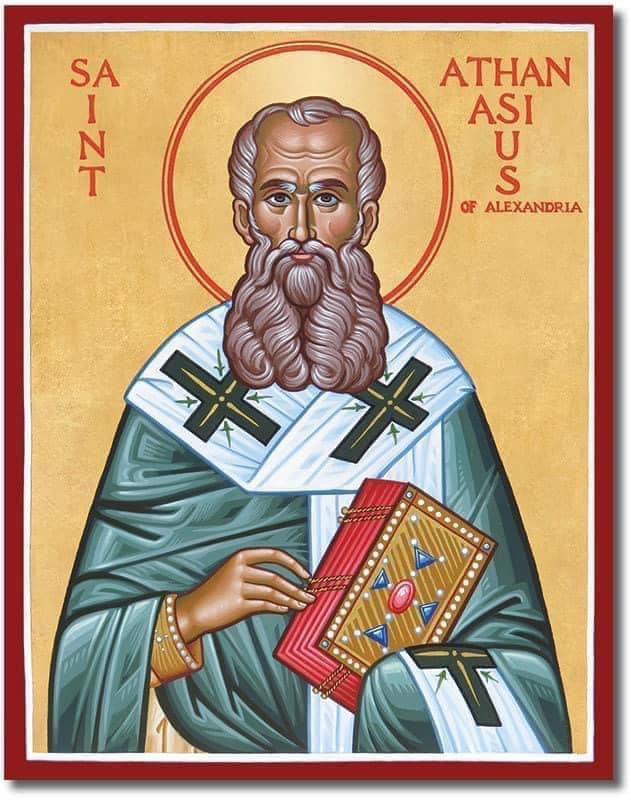
Today the church remembers 4th Century Bishop St. Athanasius, who presided in Alexandria and was not known for brevity.
Athanasius is known as “the father of Orthodoxy,” arguing vehemently with the Arians who denied the full divinity of Jesus. Because of him the phrase “of one Being with the Father” became central to the Nicene Creed at the Council of Nicaea in 325.
He assumed the Bishopric as the successor of Bishop Alexander, but many opposed his selection and, like he with Arius, brought him up on heresy charges. He appealed to Constantine himself, and was mercifully exiled to northern Gaul.
After Constantine’s death he was allowed to return to Alexandria and resume his duties. Yet, it wasn’t before long that he was charged again by those who disliked him. Pope Julius I convened a council in the late 330’s and declared Athanasius innocent.
He would be brought up on heresy charges again, of course, and by his death he would see exile from the church five times.
The Athanasian Creed, named after Athanasius (though not written by him) is still sometimes recited on Holy Trinity Sunday in some parishes. It is yet a further “circling of the wagons” of the creeds of the ancient church, leaving less room for interpreting God’s work in the world.
Athanasius is seen as a great “doctor of the church,” but he should also be seen as a case study for what happens when our search for what is “correct” overwhelms the church. The one who cried heresy against others was quickly charged of heresy himself…and it would mark his whole life.
The schisms in our own Lutheran legacy are a testament to this deep and unfortunate truth.
If the faith is contingent solely on right and inerrant interpretation, you eventually end up with a church of one: yourself.
-historical bits from Pfatteicher’s New Book of Festivals & Commemorations
-icon can be purchased at monasteryicons.com
